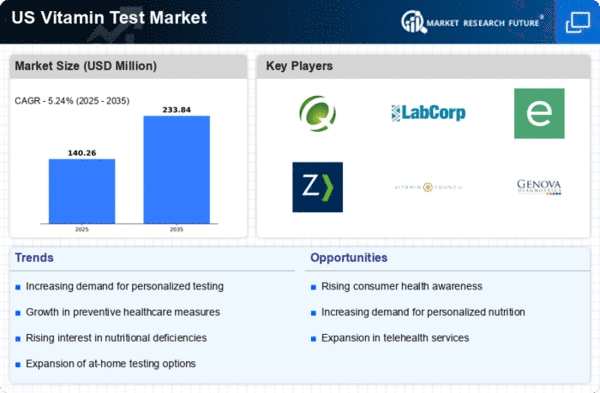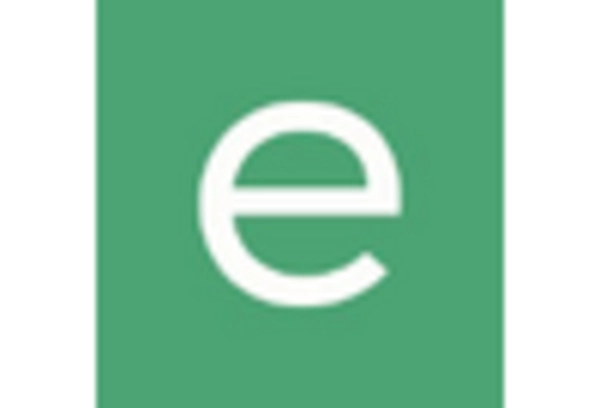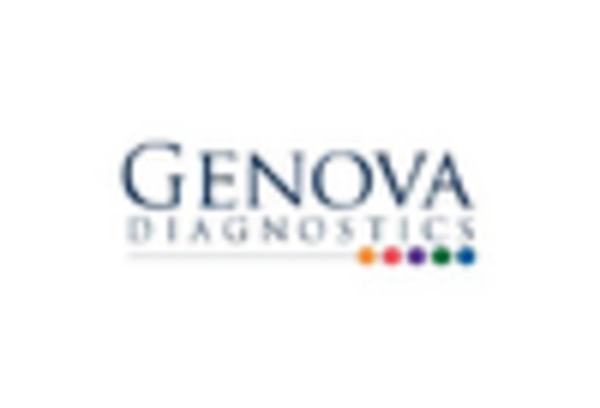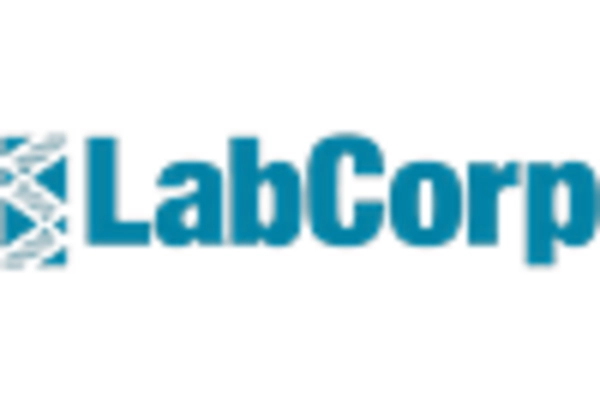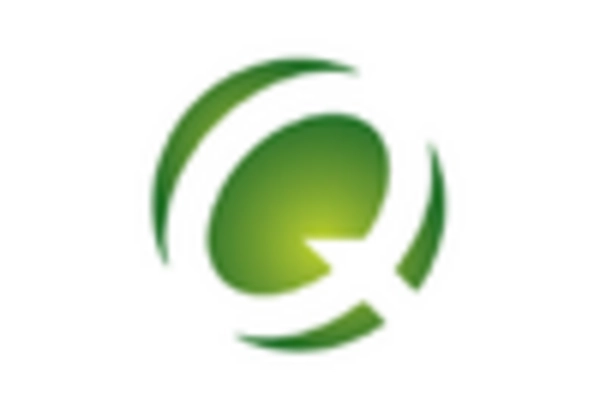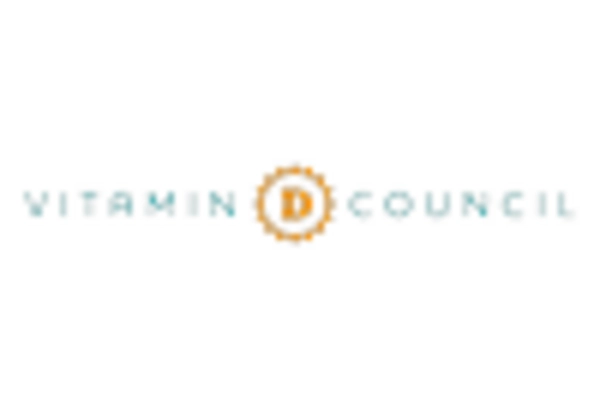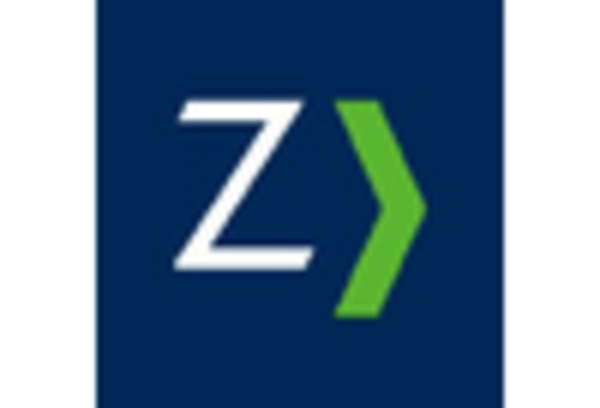Rising Health Consciousness
The vitamin test market is experiencing growth due to a notable increase in health consciousness among consumers. Individuals are becoming more proactive about their health, seeking ways to monitor and improve their nutritional status. This trend is reflected in the rising demand for vitamin testing services, as people aim to identify deficiencies and optimize their health. According to recent data, approximately 60% of adults in the US express interest in regular health screenings, including vitamin tests. This heightened awareness is driving the vitamin test market, as consumers prioritize preventive healthcare measures and personalized nutrition.
Expansion of Retail Health Services
The expansion of retail health services is playing a crucial role in the vitamin test market. Retail clinics and pharmacies are increasingly offering vitamin testing as part of their health services, making it more accessible to consumers. This trend is particularly relevant in urban areas, where convenience is a key factor for health-seeking behavior. The retail health market is projected to grow by 25% over the next five years, indicating a robust opportunity for the vitamin test market. As more consumers turn to retail settings for health services, the demand for vitamin testing is expected to rise, further propelling market growth.
Aging Population and Nutritional Needs
The aging population in the US is significantly impacting the vitamin test market. As individuals age, their nutritional needs evolve, often leading to deficiencies in essential vitamins and minerals. This demographic shift is prompting healthcare providers to recommend regular vitamin testing to monitor and address these deficiencies. It is estimated that by 2030, nearly 20% of the US population will be over 65 years old, creating a substantial market for vitamin testing services. The vitamin test market is thus positioned to benefit from this trend, as older adults seek to maintain their health and well-being through informed nutritional choices.
Integration of Digital Health Solutions
The integration of digital health solutions is transforming the vitamin test market. With the proliferation of mobile health applications and telehealth services, consumers can now access vitamin testing and results remotely. This convenience is appealing, particularly to tech-savvy individuals who prefer managing their health digitally. The market for digital health solutions is projected to reach $500 billion by 2025, indicating a substantial opportunity for the vitamin test market to leverage technology. As more consumers adopt these solutions, the demand for vitamin testing services is likely to increase, enhancing overall market growth.
Increased Focus on Preventive Healthcare
The vitamin test market is benefiting from a growing emphasis on preventive healthcare. Consumers are increasingly recognizing the importance of early detection and intervention in health management. This shift is leading to a rise in the demand for vitamin testing as a proactive measure to identify potential health issues before they escalate. Recent surveys indicate that over 70% of consumers are willing to invest in preventive health services, including vitamin tests. This trend is likely to drive the vitamin test market, as healthcare providers and consumers alike prioritize preventive strategies to enhance overall health outcomes.


